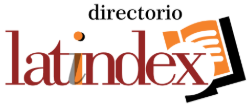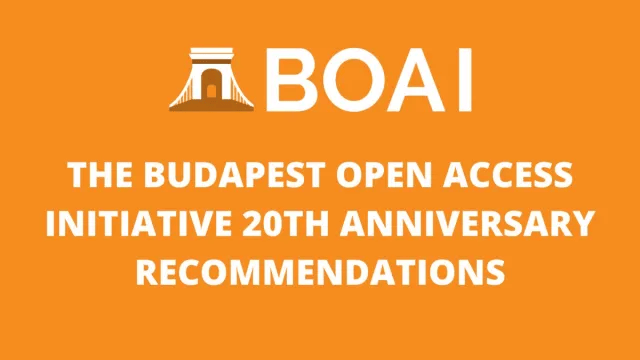Law and innovation in food biotechnology: ethical implications for the production of functional foods
DOI:
https://doi.org/10.5281/zenodo.15252856Keywords:
functional foods, food legislation, ethics in biotechnology, labeling regulation, consumer safetyAbstract
Functional foods have emerged as an innovative category within the food industry, promoted for their ability to offer additional benefits beyond essential nutrition. However, their commercialization poses significant legal and ethical challenges, particularly regarding regulating their health benefits, producer responsibility, and equity in access. This systematic review analyzes current legislation in various jurisdictions, including the European Union, the United States, and Latin America, comparing regulatory approaches and their impact on food safety and consumer protection. It also examines the main ethical dilemmas associated with promoting these products, such as labeling transparency, unequal access to functional foods, and using biotechnology in their development. The results show that while regulatory frameworks exist to regulate these issues, challenges persist in their practical implementation and the harmonization of standards internationally. It concludes that stricter and more consistent regulation, along with clear and accessible communication strategies for consumers, is essential to ensure safety and equity in the functional foods market.
Downloads
References
Agurs-Collins, T., Alvidrez, J., ElShourbagy, S., Evans, M., Gibbs, K., Kowtha, B., Pratt, C., Reedy, J., Shams-White, M., & Brown, A.G. (2024). Perspective: Nutrition Health Disparities Framework: A Model to Advance Health Equity. Adv Nutr, 15(4), 100194. https://doi.org/10.1016/j.advnut.2024.100194
Baker, M.T., Lu, P., Parrella, J.A., & Leggette, H.R. (2022). Consumer Acceptance toward Functional Foods: A Scoping Review. Int J Environ Res Public Health, 19(3), 1217. http://www.doi.org/10.3390/ijerph19031217
Christoforou, A., Norsen, S., Bernstein, J., & L’Abbe, M. (2021). Examining the Prevalence, Nutritional Quality and Marketing of Foods with Voluntary Nutrient Additions in the Canadian Food Supply. Nutrients, 13(9), 3115. https://doi.org/10.3390/nu13093115
Coppens, P., da Silva, M.F., & Pettman, S. (2006). Euro-pean regulations on nutraceuticals, dietary supplements and functional foods: a framework based on safety. Toxicology, 221(1), 59-74. https://doi.org/10.1016/j. tox.2005.12.022
Damián, M.R., Cortes-Perez, N.G., Quintana, E.T., Ortiz-Moreno, A., Garfias, C., Cruceño-Casarrubias, C.E., Sánchez, M.E., & Bermúdez-Humarán, L.G. (2022). Functional Foods, Nutraceuticals and Probiotics: A Focus on Human Health. Microorganisms, 10(5), 1065. https://doi.org/10.3390/microorganisms10051065
Di Bitonto, P., Magarelli, M., Novielli, P., Romano, D., Diacono, D., de Trizio, L., Mariano, A., Zoani, C., Ferrero, R., Manzin, A., De Angelis, M., Bellotti, R., & Tangaro, S. (2024). From data to nutrition: the impact of com puting infrastructure and artificial intelligence. Explor Foods Foodomics, 2, 810-29. https://doi.org/10.37349/ eff.2024.00063
Dietary Supplement Health and Education Act (DSSHEA). (1994). Public Law 103-417. Dietary Supplement Health and Education Act. https://ods.od.nih.gov/About/ DSHEA_Wording.aspx
FAO, IFAD, UNICEF, WFP & WHO. (2023). The State of Food Security and Nutrition in the World 2023. Urbanization, agrifood systems transformation and healthy diets across the rural–urban continuum. Rome, FAO. https://doi.org/10.4060/cc3017en
Food and Drug Administration (FDA). (2024). Authorzed Health Claims That Meet the Significant Scientific Agreement (SSA) Standard. https://www.fda.gov/ food/nutrition-food-labeling-and-critical-foods/authorized-health-claims-meet-significant-scientific-agreement-ssa-standard
García-Nieto MT, Gonzálvez-Vallés JE, Viñarás-Abad M. (2021). Social Responsibility and Misleading Advertising of Health Products on the Radio. The Opinion of the Professionals. Int J Environ Res Public Health, 18(13), 6912. https://doi.org/10.3390/ijerph18136912
Ghimire, B.K., Yu, C.Y., Kim, W.-R., Moon, H.-S., Lee, J., Kim, S. H., & Chung, I. M. (2023). Assessment of Benefits and Risk of Genetically Modified Plants and Products: Current Controversies and Perspective. Sustainability, 15(2), 1722. https://doi.org/10.3390/su15021722
Gómez, C.V., Castillo, I.G., Martínez, I., & Ibañez, L. (2023). The Regulatory Status of Functional Foods in the Economic Integration Organizations of Latin America and the Caribbean. Archivos Latinoamericanos de Nutrición, 73(4), 297-312. https://doi.org/10.37527/2023.73.4.005
Gupta, A. (2023). Deceptive advertising, regulation and naive consumers. International Journal of Industrial Organization, 91, 103026. https://doi.org/10.1016/j.ijindorg.2023.103026
Hilbeck, A., Meyer, H., Wynne, B. & Millstone, E. (2020). GMO regulations and their interpretation: how EFSA’s guidance on risk assessments of GMOs is bound to fail. Environ Sci Eur, 32(54). https://doi.org/10.1186/ s12302-020-00325-6
Holm, L. (2003). Food Health Policies and Ethics: Lay Perspectives on Functional Foods. Journal of Agricultural and Environmental Ethics, 531-544. https://doi.or g/10.1023/B:JAGE.0000004966.67083.8ª
Intrasook, J., Tsusaka, T.W., & Anal, A.K. (2024). Trends and current food safety regulations and policies for functional foods and beverages containing botanicals. J Food Drug Anal, 32(2), 112-139. http://www.doi. 39 J. Law Epistemic Stud. (January - June 2025) 3(1): 31-39 org/10.38212/2224-6614.34990
Muela-Molina, C., Perelló-Oliver, S., & García-Arranz, A. (2021). False and misleading health-related claims in food supplements on Spanish radio: an analysis from a European Regulatory Framework. Public Health Nutr, 24(15), 5156-5165. doi: https://doi.org/10.1017/S1368980021002007
Ohri-Vachaspati, P., DeWeese, R.S., Acciai, F., DeLia, D., Tulloch, D., Tong, D., Lorts, C., & Yedidia, M. (2019). Healthy Food Access in Low-Income High-Minority Communities: A Longitudinal Assessment-2009-2017. Int J Environ Res Public Health, 16(13), 2354. https:// doi.org/10.3390/ijerph16132354
Pettoello-Mantovani, C., & Olivieri, B. (2022). Food safety and public health within the frame of the EU legislation. Global Pediatrics, 2, 100020. https://doi.org/10.1016/j. gpeds.2022.100020
Ponte, L.G.S., Ribeiro, S.F., Antunes, A.E.C., Bezerra, R.M.N., & da Cunha, D.T. (2024). Beyond the Myths: Brazilian Consumer Perceptions of Functional Food. Foods, 13(24), 4161. https://doi.org/10.3390/ foods13244161
Reglamento CE No 1924/2006. (2006). Reglamento del Parlamento Europeo y del Consejo relativo a las declaraciones nutricionales y de propiedades saludables en los alimentos. https://www.boe.es/doue/2006/404/L00009- 00025.pdf
Schroeder, D. (2007). Public Health, Ethics, and Functional Foods. J Agric Environ Ethics, 20, 247-259. https://doi. org/10.1007/s10806-007-9033-1
Shimizu, T. (2003). Health claims on functional foods: the Japanese regulations and an international comparison. Nutr Res Rev, 16(2), 241-52. https://doi.org/10.1079/ NRR200363
Sosa-Holwerda, A., Park, O.H., Albracht-Schulte, K., Niraula, S., Thompson, L., & Oldewage-Theron, W. (2024). The Role of Artificial Intelligence in Nutrition Research: A Scoping Review. Nutrients, 16(13), 2066. https://doi.org/10.3390/nu16132066
Spackman, C. (2019). Functional Foods. In: Kaplan, D.M. (eds) Encyclopedia of Food and Agricultural Ethics. Springer, Dordrecht. https://doi.org/10.1007/978-94- 024-1179-9_94
Varzakas, T., & Antoniadou, M. (2024). A Holistic Approach for Ethics and Sustainability in the Food Chain: The Gateway to Oral and Systemic Health. Foods, 13(8), 1224. https://doi.org/10.3390/foods13081224
Virgen, C.A., y Mojica, L. (2024). Revisión histórica y conceptual de los alimentos funcionales: antecedentes, perspectivas y desafíos. Journal of Behavior and Feeding, 4(7), 11-20. https://doi.org/10.32870/jbf.v4i7.48
Weale A. (2010). Ethical arguments relevant to the use of GM crops. N Biotechnol, 27(5), 582-7. https://doi.org/10.1016/j.nbt.2010.08.01
Published
Data Availability Statement
Not applicable.
Issue
Section
License
Copyright (c) 2025 Daliannis Rodríguez, Mario A. García (Author)

This work is licensed under a Creative Commons Attribution-NonCommercial-ShareAlike 4.0 International License.
































